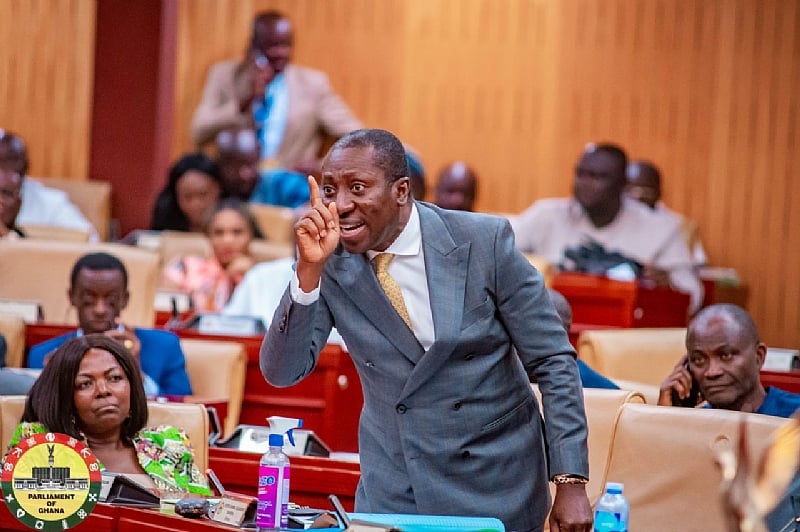The implementation of the 24-hour economy policy, a flagship initiative of the National Democratic Congress (NDC) government led by President John Dramani Mahama, has become a subject of contention between the ruling party and the opposition. The Minority in Parliament, led by Alexander Afenyo-Markin, MP for Effutu, criticizes the government for its perceived lack of concrete action and accuses it of merely forming committees without tangible progress. They point to the absence of any mention of the 24-hour economy in the 2025 budget statement, despite President Mahama’s earlier assurance in his State of the Nation Address (SONA) that provisions would be made. This omission, according to the Minority, signals a lack of seriousness and commitment to the initiative. They argue that a genuine commitment would have translated into budgetary allocations and concrete steps towards implementation.
The Minority’s critique also highlights the government’s response to their concerns, which they characterize as dismissive and evasive. Dr. Ato Forson, a key figure in the government’s economic team, is reported to have stated that the 24-hour economy is “being considered,” a response the Minority finds unsatisfactory. Further, the inauguration of yet another committee to oversee the implementation of the policy is seen by the opposition as a delaying tactic rather than a sign of progress. They argue that the proliferation of committees without corresponding action on the ground underscores the government’s failure to deliver on its promise. Afenyo-Markin asserts that if the government were serious about the 24-hour economy, it would have been a prominent feature of the first-year budget.
In contrast to the Minority’s criticism, President Mahama maintains that his administration has taken significant strides in implementing the 24-hour economy initiative. He emphasizes that the groundwork is being laid through key legal reforms and institutional adjustments. These initial steps, according to President Mahama, are essential for creating the necessary framework for a fully functional 24-hour economic system. He portrays these behind-the-scenes activities as crucial precursors to more visible actions and assures the nation that the initiative is on track.
The differing perspectives on the progress of the 24-hour economy policy highlight a fundamental disagreement between the government and the opposition regarding its implementation. The Minority focuses on the lack of visible action and budgetary allocation, interpreting these omissions as evidence of a failure to deliver on a key campaign promise. President Mahama, on the other hand, emphasizes the importance of the foundational work being done, arguing that these less visible steps are crucial for the long-term success of the initiative. This divergence of views reflects the inherent tension between the government’s emphasis on long-term planning and the opposition’s demand for immediate, tangible results.
The debate over the 24-hour economy also raises broader questions about the government’s economic strategy and its ability to deliver on its promises. The Minority’s criticism suggests a lack of confidence in the government’s economic management, portraying it as prone to inaction and bureaucratic delays. President Mahama’s response, in turn, seeks to project an image of a government working diligently behind the scenes to lay the foundation for sustainable economic growth. The success or failure of the 24-hour economy policy will likely play a significant role in shaping public perception of the government’s overall economic performance.
The implementation of the 24-hour economy policy will undoubtedly continue to be a closely watched issue in Ghanaian politics. The government’s ability to translate its vision into tangible results will be crucial for maintaining public trust and demonstrating its commitment to economic development. The Minority’s ongoing scrutiny will likely keep the pressure on the government to deliver on its promises and provide concrete evidence of progress. The ultimate outcome of this policy initiative will have significant implications for the Ghanaian economy and the political landscape of the country.














